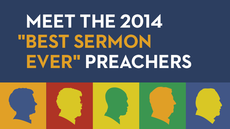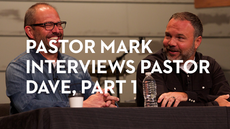At Caesarea there was a man named Cornelius, a centurion of what was known as the Italian Cohort, 2 a devout man who feared God with all his household, gave alms generously to the people, and prayed continually to God. 3 About the ninth hour of the day he saw clearly in a vision an angel of God come in and say to him, “Cornelius.” 4 And he stared at him in terror and said, “What is it, Lord?” And he said to him, “Your prayers and your alms have ascended as a memorial before God. 5 And now send men to Joppa and bring one Simon who is called Peter. 6 He is lodging with one Simon, a tanner, whose house is by the sea.” 7 When the angel who spoke to him had departed, he called two of his servants and a devout soldier from among those who attended him, 8 and having related everything to them, he sent them to Joppa.Peter’s vision
9 The next day, as they were on their journey and approaching the city, Peter went up on the housetop about the sixth hour to pray. 10 And he became hungry and wanted something to eat, but while they were preparing it, he fell into a trance 11 and saw the heavens opened and something like a great sheet descending, being let down by its four corners upon the earth. 12 In it were all kinds of animals and reptiles and birds of the air. 13 And there came a voice to him: “Rise, Peter; kill and eat.” 14 But Peter said, “By no means, Lord; for I have never eaten anything that is common or unclean.” 15 And the voice came to him again a second time, “What God has made clean, do not call common.” 16 This happened three times, and the thing was taken up at once to heaven.
17 Now while Peter was inwardly perplexed as to what the vision that he had seen might mean, behold, the men who were sent by Cornelius, having made inquiry for Simon’s house, stood at the gate 18 and called out to ask whether Simon who was called Peter was lodging there. 19 And while Peter was pondering the vision, the Spirit said to him, “Behold, three men are looking for you. 20 Rise and go down and accompany them without hesitation, for I have sent them.” 21 And Peter went down to the men and said, “I am the one you are looking for. What is the reason for your coming?” 22 And they said, “Cornelius, a centurion, an upright and God-fearing man, who is well spoken of by the whole Jewish nation, was directed by a holy angel to send for you to come to his house and to hear what you have to say.” 23 So he invited them in to be his guests.
The next day he rose and went away with them, and some of the brothers from Joppa accompanied him. 24 And on the following day they entered Caesarea. Cornelius was expecting them and had called together his relatives and close friends. 25 When Peter entered, Cornelius met him and fell down at his feet and worshiped him. 26 But Peter lifted him up, saying, “Stand up; I too am a man.” 27 And as he talked with him, he went in and found many persons gathered. 28 And he said to them, “You yourselves know how unlawful it is for a Jew to associate with or to visit anyone of another nation, but God has shown me that I should not call any person common or unclean. 29 So when I was sent for, I came without objection. I ask then why you sent for me.”
30 And Cornelius said, “Four days ago, about this hour, I was praying in my house at the ninth hour, and behold, a man stood before me in bright clothing 31 and said, ‘Cornelius, your prayer has been heard and your alms have been remembered before God. 32 Send therefore to Joppa and ask for Simon who is called Peter. He is lodging in the house of Simon, a tanner, by the sea.’ 33 So I sent for you at once, and you have been kind enough to come. Now therefore we are all here in the presence of God to hear all that you have been commanded by the Lord.”Gentiles hear the good news
34 So Peter opened his mouth and said: “Truly I understand that God shows no partiality, 35 but in every nation anyone who fears him and does what is right is acceptable to him. 36 As for the word that he sent to Israel, preaching good news of peace through Jesus Christ (he is Lord of all), 37 you yourselves know what happened throughout all Judea, beginning from Galilee after the baptism that John proclaimed: 38 how God anointed Jesus of Nazareth with the Holy Spirit and with power. He went about doing good and healing all who were oppressed by the devil, for God was with him. 39 And we are witnesses of all that he did both in the country of the Jews and in Jerusalem. They put him to death by hanging him on a tree, 40 but God raised him on the third day and made him to appear, 41 not to all the people but to us who had been chosen by God as witnesses, who ate and drank with him after he rose from the dead. 42 And he commanded us to preach to the people and to testify that he is the one appointed by God to be judge of the living and the dead. 43 To him all the prophets bear witness that everyone who believes in him receives forgiveness of sins through his name.”The Holy Spirit falls on the Gentiles
44 While Peter was still saying these things, the Holy Spirit fell on all who heard the word. 45 And the believers from among the circumcised who had come with Peter were amazed, because the gift of the Holy Spirit was poured out even on the Gentiles. 46 For they were hearing them speaking in tongues and extolling God. Then Peter declared, 47 “Can anyone withhold water for baptizing these people, who have received the Holy Spirit just as we have?” 48 And he commanded them to be baptized in the name of Jesus Christ. Then they asked him to remain for some days.
Introduction
When God speaks, are you swift or slow to respond? Maybe you frequently delay, ensuring you understand before proceeding. Perhaps you immediately rush to fulfill the command, saying “Yes, Sir!”
This is the contrast we see in Acts 10 between Cornelius and Peter. Both are faithful, devout men of God, both receive distinct messages from the Lord, and both immediately identify God as the source of the message. Yet only Cornelius, a Gentile not considered worthy by the Jews, is immediate in his obedience. Peter, a disciple of Jesus, questions God three times before he finally obeys. Why?
Questioning God’s direction is not uncommon for Peter. From the first time Peter is called in Luke 5:4–5, throughout his time with Jesus in ministry, and until Jesus’ crucifixion, Peter often questioned Jesus before obeying. There are times when even devout Christian leaders hesitate to obey.
In Peter’s case, his hesitation may have been because God’s vision and message was almost unbelievable. Because of the dietary laws established hundreds of years earlier (see Lev. 11), God’s people did not dine with unbelievers; the danger of being exposed to something unclean was too high. With time, restrictions were also applied to their association with the Gentiles. Not only was Gentile food unclean, they were as well. Though Jesus later went on to fulfill the law (Mark 7:1–23; Matt. 15:1–20), thereby nullifying Old Testament ceremonial laws, Jewish opinions about the Gentiles remained largely the same.
In the end, because both Cornelius and Peter were obedient, God’s all-along plan of bringing his Son to the nations took a giant leap forward. The Gentiles heard about Jesus, knew him as their Savior from sin, received the Holy Spirit, and were baptized publicly. If there was ever a time to be grateful for man’s obedience to God, this was it.
Observation
- Describe the character qualities of Cornelius in Acts 10:1–8.
- Describe the character qualities of Peter in Acts 10:9–16.
- Describe the vision that Peter saw in verses 11–13.
- What was Peter’s objection to God’s command?
- Identify the commands given by God to Cornelius and Peter that required obedience.
- At what point did Peter understand the meaning of the vision God gave him?
- What did Peter do in verses 34–43?
- According to verse 35, who is acceptable to God?
- According to verse 43, who receives forgiveness of sins? How is forgiveness received?
- According to verse 44, what happened while Peter was preaching?
Interpretation
- Read Genesis 12:1–3. Through Abram, who would be blessed?
- Read Matthew 28:19–20. Peter was present for this command from Jesus, and knew that Jesus is part of Abram’s lineage. Why was he reluctant to believe that God wanted him to proclaim Jesus to the Gentiles?
- Read Acts 2:1–5. In what way were the disciples fulfilling the command in Matthew 28:19–20?
- Peter states that Cornelius knows it is unlawful for a Jew to associate or visit with someone from another nation (10:28). What does this suggest about the implications of what is about to happen?
- What is Peter getting at when he says God does not show partiality in verse 34?
- What is the significance of Peter’s words “just as we have” in 10:47?
- What is the significance of Peter’s willingness to stay with the Gentiles for a few more days?
- Describe five ways we see God at work in this passage to bring the Gentiles to him.
- In chapter 11, Peter gives a report to the Jerusalem church about the Gentiles receiving the Holy Spirit. Why was it important that other believers were present for the event in Caesarea in chapter 10?
- Peter said “no” to God before understanding his command. What may have driven Peter’s initial response? What prompted his eventual obedience?
- The Jews had many restrictions about associating with Gentiles. What harm might that have caused? Discuss the possible consequences of disobedience if Cornelius and Peter obeyed Jewish law instead of God’s command.
- Whose activity is primary in this account? Whose activity is secondary? What is most important about Luke’s message in chapter 10?
Application
A lot is happening in this section of Scripture, but we will focus on how we as Christians respond when we are asked by God to obey.
- Describe a time when you didn’t immediately obey something God called you to. Why did you hesitate? Describe a time when you immediately obeyed. What caused you to respond to God promptly?
- In John 10:3b–5, Jesus talks about his sheep knowing his voice. When have you heard Jesus’ voice? When have you heard the stranger’s voice? How do you know the difference?
- Describe ways we image God to others (i.e., believers and unbelievers) in our obedience.
- Showing partiality isn’t just about Jew and Gentile. We may also discriminate against someone for other, more superficial reasons (James 2:1–9). How have you subscribed to extra rules or shown partiality with regard to those with whom you share the gospel? How have you judged others based on your personal legalisms?
- Are you tempted to doubt your salvation or standing with God when you are slow to obey? According to Romans 8:35–39, what separates us from God? According to Acts 10, who empowers our obedience?
This devotion is adapted from the Acts Study Guide: Chapter 6–11. Pick up a copy today for only $9.99. The Study Guide includes an 11-week curriculum with small group studies, group inductive studies, as well as 55 daily devotions for your personal or family worship.















